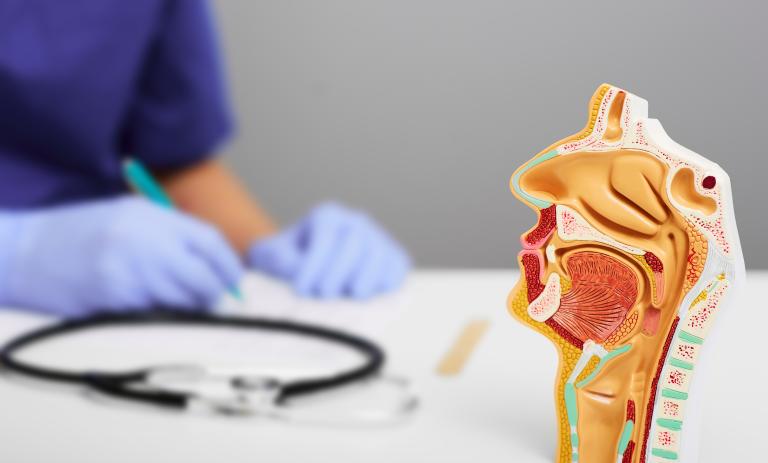Health concerns related to the ear, nose, and throat are more common than many people realize. From persistent sinus infections to hearing issues and throat complications, these problems can affect quality of life if left untreated. The field of otolaryngology, more commonly known as ENT (Ear, Nose, and Throat), addresses these conditions with a blend of medical expertise and advanced diagnostic tools.
Who Is an ENT Doctor?
An Ent Doctor Singapore is a medical specialist trained to diagnose and treat conditions affecting the ear, nose, throat, head, and neck. Unlike general practitioners, ENT doctors undergo years of specialized training to manage both common and complex health concerns in these areas. Their expertise often extends to allergies, sleep disorders, and even reconstructive procedures related to facial structures.
Why Visit an ENT Specialist?
Ear Health
ENT doctors treat issues such as hearing loss, ear infections, tinnitus (ringing in the ears), and balance disorders. They may also provide guidance on hearing aids or surgical options when necessary.
Nasal and Sinus Conditions
Chronic sinusitis, nasal obstruction, deviated septum, and allergies are among the most frequent concerns. Proper diagnosis ensures patients receive long-term relief rather than temporary fixes.
Throat and Voice Disorders
From tonsillitis to voice strain and swallowing difficulties, ENT specialists address conditions that affect daily communication and well-being.
Head and Neck Concerns
ENT doctors are trained to evaluate and treat growths, lumps, or cancers in the head and neck region. Early detection through specialist care can be life-saving.
Common Conditions Managed by ENT Specialists
- Allergic Rhinitis: A common issue causing sneezing, congestion, and runny nose.
- Ear Infections: Frequent in children, but adults can experience them too.
- Sleep Apnea: ENT doctors often manage obstructive sleep apnea by addressing nasal or throat blockages.
- Voice and Speech Disorders: Vocal cord nodules or polyps may require medical or surgical care.
- Hearing Loss: Whether due to age, genetics, or prolonged exposure to loud environments, ENT doctors provide tailored treatments.
The Importance of Early Diagnosis
Ignoring recurring earaches, chronic nasal congestion, or throat discomfort can lead to long-term complications. For example, untreated ear infections may cause hearing damage, while persistent sinus issues may affect sleep and productivity. Early diagnosis by an ENT doctor not only prevents worsening of symptoms but also promotes quicker recovery.
Advanced Diagnostic and Treatment Methods
Endoscopy
Small cameras allow ENT specialists to see inside the nasal passages, throat, or ear canals for accurate diagnoses.
Audiology Testing
Specialized hearing tests help assess different levels and types of hearing loss.
Imaging Techniques
CT scans or MRIs may be used to investigate sinus structures, head, or neck abnormalities.
Minimally Invasive Surgery
Modern ENT procedures often involve minimally invasive techniques, leading to shorter recovery times and reduced discomfort.
ENT and Quality of Life
Better Breathing
Addressing sinus or nasal problems enhances sleep, physical activity, and overall comfort.
Clearer Communication
Treatment of throat and voice disorders restores confidence in both personal and professional interactions.
Restored Hearing
For individuals with hearing issues, corrective treatments improve relationships, safety, and participation in daily life.
Reduced Fatigue
Many ENT-related conditions, such as sleep apnea or chronic sinusitis, contribute to fatigue. Treatment often leads to better rest and renewed energy.
Trends in ENT Healthcare
Personalized Treatment Plans
Modern ENT care tailors solutions to each patient, whether through customized allergy management or hearing rehabilitation programs.
Use of Technology
Teleconsultations, digital hearing aids, and robotic surgery are making ENT treatments more precise and accessible.
Focus on Preventive Care
Rather than waiting for severe symptoms, patients are encouraged to consult specialists at the first signs of recurring ENT issues.
When Should You See an ENT Doctor?
It’s advisable to consult an ENT specialist if you experience:
- Recurring ear infections or sudden hearing loss
- Persistent sinus congestion or nasal blockage
- Frequent sore throats or hoarseness
- Breathing difficulties during sleep
- Lumps or swelling in the neck
Conclusion
The ear, nose, and throat are interconnected systems vital to daily functioning. Consulting an ENT specialist ensures that concerns in these areas are not overlooked or underestimated. By combining expertise with advanced medical techniques, ENT doctors play an essential role in improving health, comfort, and quality of life. Whether it’s chronic sinusitis, voice problems, or hearing difficulties, timely consultation can make all the difference.
